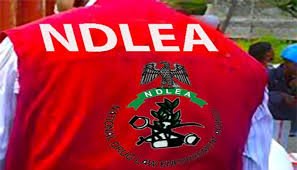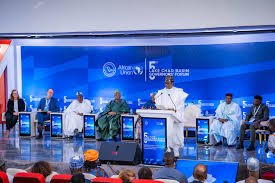Professor Ukertor Gabriel Moti has said that artificial intelligence (AI) is emerging as both a powerful tool and a significant challenge in the fight against disinformation.
Prof Moti, was the keynote speaker at the Second Regional Conference on Countering Disinformation and Hate Speech in West Africa.
The conference, organized by the Centre for Democracy and Development (CDD-West Africa) in collaboration with the National Democratic Institute (NDI) funded by Global Affairs Canada, is taking place from July 9th to 11th, 2024, in Lagos, Nigeria.
Addressing attendees on Tuesday, the professor emphasized the dual nature of AI in the information landscape.
He said, “Artificial intelligence, in its broadest sense, is intelligence exhibited by machines, particularly computer systems, AI technology is widely used throughout industry, government, and science.”
He highlighted various high-profile applications of AI, including advanced web search engines, recommendation systems, speech interaction technologies, autonomous vehicles, generative and creative tools, and superhuman play in strategy games.
However, he cautioned that these same technologies could be weaponized to spread disinformation.
Citing recent data from the Africa Center for Strategic Studies, Professor Moti revealed an alarming trend: “Disinformation campaigns seeking to manipulate African information systems have surged nearly fourfold since 2022, triggering destabilizing and antidemocratic consequences.”
The scope of this problem is significant, with 189 documented disinformation campaigns across Africa, nearly quadrupling the number reported in 2022. These campaigns have targeted every region of the continent, affecting at least 39 African countries.
He pointed out that Russia continues to be the primary purveyor of disinformation in Africa, sponsoring 80 documented campaigns targeting more than 22 countries. “This represents nearly 40 percent of all disinformation campaigns in Africa,” he stated.
The Chinese Communist Party (CCP) was identified as the second most prolific Africa-wide sponsor of disinformation, with five known multi-regional campaigns. Professor Moti noted that the CCP’s approach is more institutionalized and heavily invested in laundering official narratives through ownership and control of ICT infrastructure.
Militant Islamist groups were cited as a third major sponsor of disinformation, particularly in West Africa. “Nigeria is an illustration of how these groups have used a variety of disinformation tactics via local languages and closed networks to recruit and spread their messages,” Professor Moti explained.
The professor highlighted the challenges posed by the limited regulatory presence of global tech platforms in West Africa, with priority given to politically influential countries.
“Even in these key markets, the platforms are failing to effectively moderate content or implement their own standards,” he said.
However, Professor Moti also emphasized the potential of AI in combating disinformation. “Artificial Intelligence adds significant value by enabling the identification of the ‘core story’ in the content and finding other variations in the consolidated pool of content,” he stated. AI agents can find cross-posts and newer versions of the same story, along with references and user discussion threads from various sources and in different languages.
The professor described an AI-powered “fact-checking orchestrator” that could synthesize lists of stories needing evaluation by a global network of reviewers. This system would simplify the assessment process by making intelligent suggestions and recommendations to the reviewers.
Professor Moti also highlighted several AI-powered tools that can aid in detecting false information, including TinEye for reverse image searches and Whois for domain verification.
Despite these technological advancements, Professor Moti stressed the importance of human involvement. “The global community of professionals and active ‘digital citizens of the world’ discover, evaluate, and vote for or against certain aspects of the story with proper justification, inline references, and annotations,” he explained.
He called for increased collaboration among stakeholders, including policymakers, tech companies, researchers, and civil organizations.
“Through enhanced collaboration, innovation, and regulation, we can harness the benefits of AI while safeguarding against its risks, ensuring a future where technology uplifts rather than undermines public trust and democratic values,” he stated.
The professor’s address underscores the complex role of AI in the modern information ecosystem, highlighting both its potential to spread disinformation and its capacity to combat it.
























